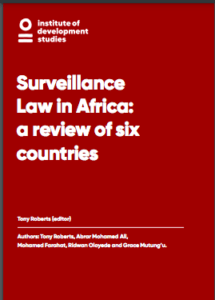This September 2017 study by Pashapa, Tapfuma and Rivett, Ulrike finds that technology plays a significant role in bridging gender gap in labour market outcomes.
The paper investigates gender differential in broadband Internet usage and its effects on women‘s labour market participation. Employing an instrumental variable approach, findings suggest that exogenously determined high-speed broadband internet usage leads to increases of about 14.1 and 10.6 percentage points in labour market participation for single women and married women with some level of education, respectively. Moreover, further analyses suggest that married women are generally less likely to use the Internet to search for job opportunities and this could partly explains their low labour market participation rate. The findings suggest that more policy effort is required to bridge gender differentials in digital technologies and employment opportunities in South Africa.
09718524.2018.1434994




